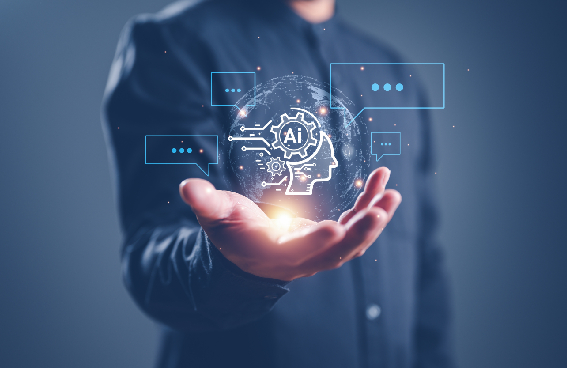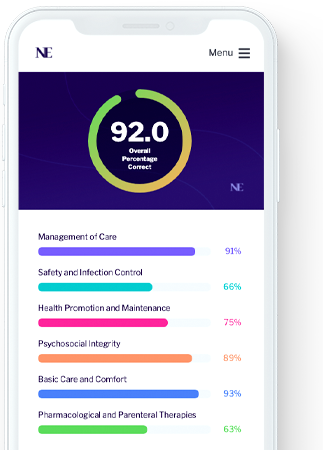Artificial Intelligence in Healthcare: A Nursing Perspective
Many professions are wondering if artificial intelligence could do what they do, and nurses are no exception. In the Disney movie Big Hero 6, one character invents a robot named Baymax. This friendly, gentle giant can diagnose your medical complaint and treat it on the spot.
While we’re still miles away from such an innovation, artificial intelligence has already crept into clinical practice, and may continue to grow there. The only question left: is this good or bad for nurses?
Artificial Intelligence Explained
Artificial intelligence, or AI, has been around much longer than you might think. In 1956, a computer scientist at Stanford University came up with the term during a summer research project.
Even though the concept was there, computers were not yet beefy enough to handle the amount of electronic brain power needed to make AI work. Now, however, our computers have caught up. AI works as a group of technologies that allow a computer program to not just regurgitate facts and commands, but to learn and change itself.
What Can AI Do for Nurses?
How can artificial intelligence help nurses? Some hospitals have implemented pilot programs to do just that. Not to replace nurses, but to provide a powerful tool for the bedside.
Calculate Patient Acuity
Raise your hand if you love measuring patient acuity. No one? While some nurses may enjoy this task, many detest this additional step to their already bursting shift. Many facilities use Rothman Index scores to help calculate acuity, and it seems a logical next step to use AI for these complex processes.
Identify High-Risk Patients
In most morning huddles, your charge nurse will identify any “watchers.” While these patients can be labeled in many ways, watchers are patients who the nurses have their eye on. They’re getting the dreaded “vibes,” and the charge nurse wants everyone on the floor to stay alert for trouble.
Yale New Haven Hospital (YNHH) use Rothman scores to identify watchers on their units. What if AI could do that for you? No one will be able to replace nurse vibes, but getting a second set of “eyes” on all of your patients all the time? That could be extremely helpful, and in some cases, life-saving.
Take Over Non-Nursing Tasks
How much of your time has been stolen from being with your patients at the bedside? Between charting, acuity reporting, and chart audits, many nurses find themselves rushing away from their patients to get to their computer checklist.
What if you could rely on AI to calculate your patient’s acuity? What if you could ask AI to find out who is on call for ortho and page them for you? These time-intensive tasks could be wiped away.
AI Can Increase Patient Safety
AI can help reduce the risk of medication errors, which are thought to be a leading cause of death in hospitals. About 100,000 Americans die every year from preventable medical mistakes. AI could catch these mistakes and prevent harm from reaching patients.
Hospitals like Cedars-Sinai Medical Center in Los Angeles have tried pilot programs that use an alert system in the clinical workflows of their electronic health records (EHRs). They found this alert system decreased:
- Health complications
- Ordering of unnecessary tests
- Readmissions
Theoretically, AI could even notify the care team if patients aren’t taking their meds at home. This could be especially important for patients with chronic diseases who may not have a strong sense of self-care and may be at higher risk of developing complications.
As an example, take someone with diabetes. If their blood sugar levels start to rise or fall too low, an AI-based system could notify them immediately and ask if they want to adjust their insulin dosing.
Continuity of Care
The potential for better outcomes with less variation from caregiver to caregiver is extremely attractive to both nurses and doctors. The idea that AI can help us achieve this is exciting, but it also makes sense: if we’re all using the same technology, then we should be able to share information more easily, which will lead to better care and fewer errors.
Care Transitions
AI can also help with transitions of care. These transitions can be complex and can involve multiple healthcare providers, making it difficult to ensure that all relevant information is communicated effectively. Maybe one day, AI can see a discharge note and send the appropriate points to a social worker or even a CMS case worker.
Mobile Health
Sensor-based technologies allow patients to be monitored at a distance. Say, for example, your patient was going home after an admission for congestive heart failure (CHF). You’ve gone over diet restrictions, and provided a ton of education on their new diuretic.
If your patient had access to a mobile health device, they could check vital signs, and one day possibly even lab results. Imagine as a home health nurse how valuable information like that could be, and how much better you could care for your patients.
Artificial Intelligence Is Already Here
Artificial intelligence has already been adopted in hospitals, clinics, and even pharmacies. Still, there’s a lot more potential for this technology to help healthcare professionals do their jobs more efficiently and accurately.
Artificial intelligence has been used for decades in medical research — but now it’s also making its way into clinical practice. AI-powered tools can enhance the quality of care by providing real-time data on patients’ health status and past treatments so their care teams can make better decisions about how to treat them.
AI has been used to assist with diagnoses since at least 2001. This is the year IBM’s Deep Blue computer defeated chess grandmaster Garry Kasparov. In 2011, IBM Watson became famous for its ability to defeat human contestants on Jeopardy!
Now researchers have begun applying deep learning algorithms to medical images like CT and MRI scans to identify diseases like cancerous tumors much faster than humans could do manually.
AI systems can help you make decisions, and warn you if a patient isn’t looking so hot. While there are still lots of questions about how exactly this technology will be used, it’s clear that artificial intelligence has already joined the ranks of healthcare providers across the world.




